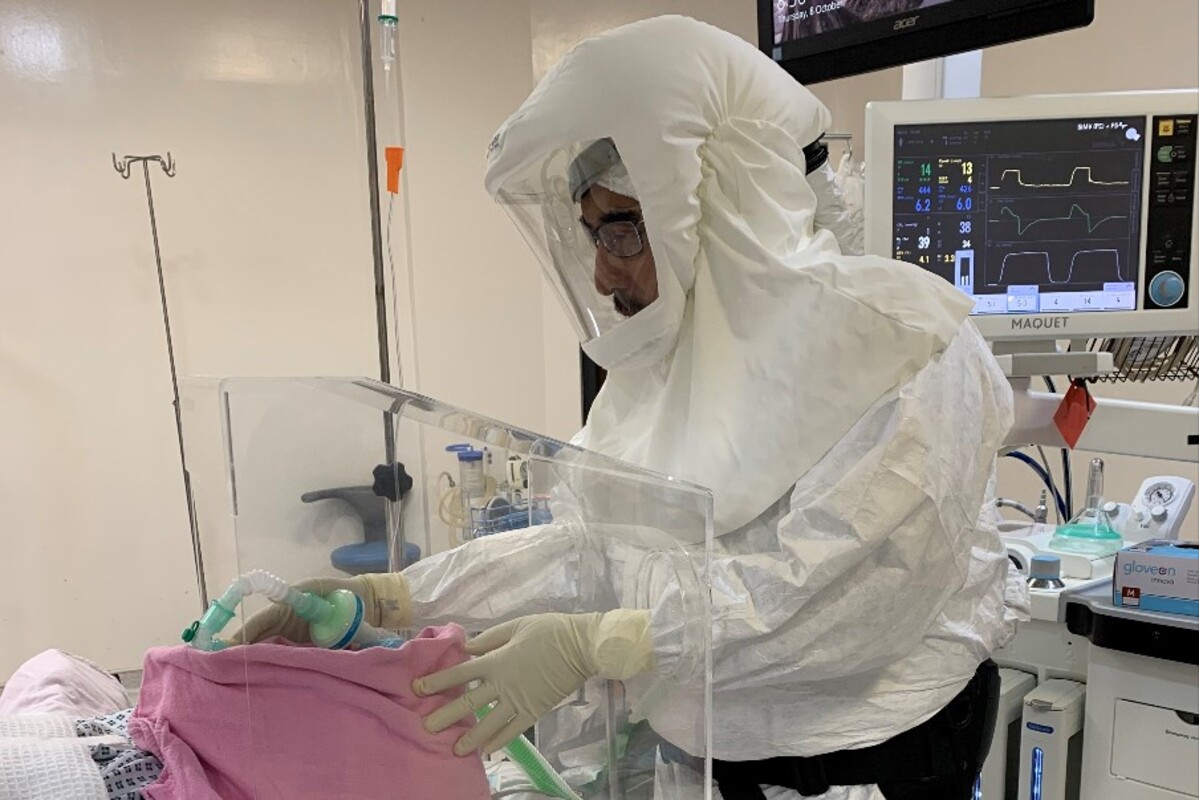KUALA LUMPUR, March 19 — The landmark Federal Court ruling on Columbia Asia’s medical negligence case may increase reluctance among anaesthesiologists and intensivists, especially in private hospitals, to treat complex cases.
The Malaysian Society of Anaesthesiologists (MSA), the College of Anaesthesiologists (CoA) under the Academy of Medicine of Malaysia, and the Malaysian Society of Intensive Care (MSIC) expressed concern about the rising trend of medicolegal cases in Malaysia.
“The resultant practice of defensive medicine inevitably adds to maldistribution of workload between the public and private sector,” the three groups said in a joint statement.
“Many anaesthesiologists and intensivists are finding it a challenge to manage patients with complex medical and surgical conditions, especially when they are seen in the private sector, leading to a reluctance in performing potential life-saving procedures and transferring the patients to an overworked public health care system.
“All because of the fear of a potential litigation in the event an undesirable outcome occurs despite all best intentions and preparations.”
A 4-1 majority verdict by the Federal Court last month in the case of Siow Ching Yee v Columbia Asia Sdn Bhd held private hospital operator Columbia Asia liable for the negligence of an anaesthetist at its Puchong hospital in Selangor, after its patient, Siow, was left with permanent mental and physical disabilities following extensive brain damage in a 2010 emergency case.
Siow’s lawyer explained that the apex court’s landmark ruling means that both Columbia Asia and the anaesthesiologist are equally liable for the full RM4.5 million award of damages, including costs, to the patient.
However, the Federal Court – which rejected Columbia Asia’s defence that doctors working at its hospitals are “independent contractors” – dismissed the private hospital company’s indemnity claim against the anaesthesiologist, ruling that Columbia Asia assumed a “non-delegable duty of care” that it “owes personally” to its patient.
According to the High Court’s 2020 judgement that held only the anaesthetist liable for negligence, but not the ear, nose and throat (ENT) surgeon or the hospital, the anaesthesiologist took 25 minutes to intubate Siow after putting the man, aged 35 then, under general anaesthesia. Expert witnesses told the court that any delay in securing the patient’s airway would cause brain damage.
The MSA, the CoA, and the MSIC pointed out that Malaysia’s medical inflation rate, at around 8 per cent to 9 per cent per annum, was among the highest in the region in 2020.
They expect this figure to remain at the same levels, due to various internal and external factors affecting the economy, thus increasing pressure on the general population’s accessibility to health care services in Malaysia.
Adding to this are the financial challenges that doctors are now facing due to medicolegal issues.
“These costs, especially when the indemnity fees or premiums go up, will inevitably be passed on to the patients seeking care at our health care facilities, thus potentially reducing access to health care to a certain segment of the population,” said the three groups representing anaesthesiologists and intensivists.
“In some cases, the indemnity costs are so high that doctors in certain high-risk fields have slowly withdrawn from performing such work just to avoid being pulled into a potential medico-legal suit.
“Our three organisations view these trends seriously and hope that all stakeholders can come together to address these challenges in a holistic manner.”
The Federation of Private Medical Practitioners’ Associations, Malaysia (FPMPAM) previously told CodeBlue that obstetricians currently pay insurance premiums as high as RM80,000 annually for indemnity coverage, forcing some ObGyns to stop obstetrics practice and to only do office gynaecology.
The MSA, the CoA, and the MSIC also told CodeBlue that anaesthesiologists are currently classified as “medium-risk” in medical indemnity insurance, based on certain indemnity provider definitions, but added: “Not all providers are uniform on this.”
The three groups suggested creating mechanisms like alternative dispute resolution in some medicolegal cases, with approaches like mediation before proceeding to litigation.
“Embarking on an open transparent dialogue between physicians, hospital management and the aggrieved family as a first step towards mending any form of discord and disagreement could further improve the manner in which such disputes are addressed,” they said.
The anaesthesiologist and intensivist groups also expressed interest in establishing a pool of expert witnesses capable of responding to different needs and contexts of the increasingly specialised and complex practice of medicine.
“These groups of experts could potentially offer an impartial view to the judges, thus reducing the adversarial nature of some of these proceedings when they appear in the courts,” they said.
At the Federal Court, neither of the three specialist doctor groups, nor any other medical association, appeared as amicus curiae (friend of the court) in the Columbia Asia case to speak on behalf of the profession.
The only amicus curiae appointed at the apex court were the Association of Private Hospitals Malaysia (APHM) and the Consumers’ Association of Penang (CAP) that represented private hospitals and patients respectively.
“Lastly, as the steps above will take some time to come to fruition, members of the three associations are strongly encouraged to speak to their indemnity providers and understand their policy terms and conditions as well as their coverage better,” said MSA, CoA, and MSIC.
“Where necessary and relevant to the nature and complexities of their work, members are advised to ensure adequate coverage is obtained in view of the rising damages that are being awarded to the patients by the courts of late.”
The joint statement was signed by MSA president Dr Yong Chow Yen, CoA president Prof Dr Ina Ismiarti Shariffuddin, and MSIC president Prof Dr Nor’azim Mohd Yunos.








